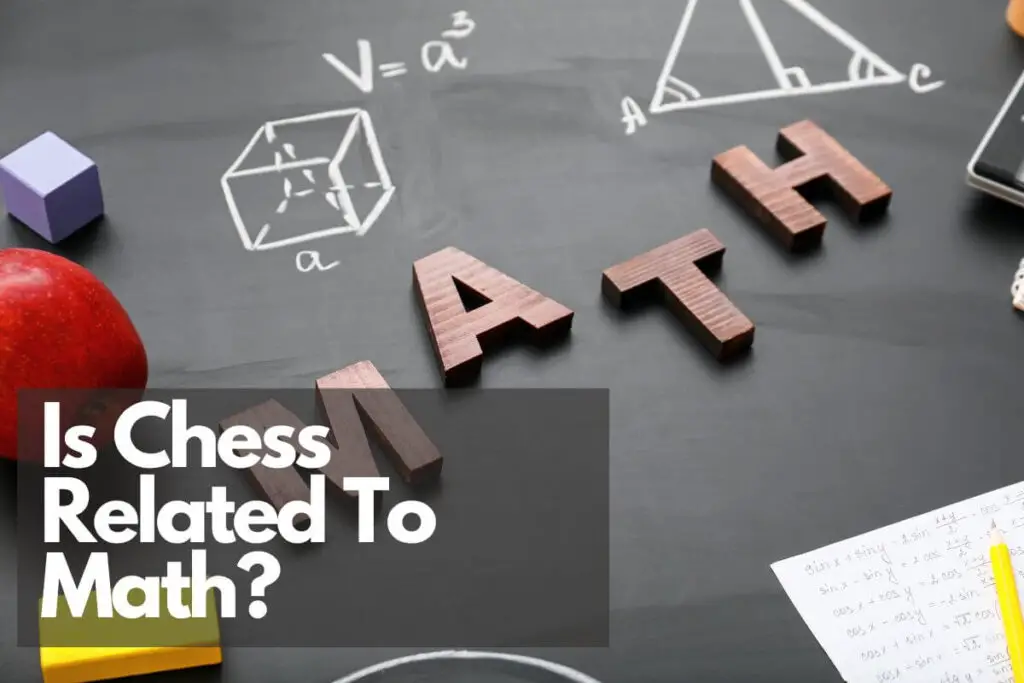Chess is a game of strategy, tactics, and skill that involves a finite set of pieces and a finite set of rules, which creates a variety of possible positions and games.
Mathematics, on the other hand, is a field of study that deals with numbers, quantities, and shapes, and their relationships and operations.
Despite their apparent differences, chess and mathematics are related in many ways. Mathematics has been applied to chess in various ways, such as in chess problems, puzzles, set theory, and abstract game theory.
Chess also involves logic, mathematical reasoning, calculation, algorithms, combinatorics, and spatial reasoning skills.
Chess Problems and Puzzles
Chess problems and puzzles are a popular way to apply mathematics to chess. Chess problems are specific positions on the board that require the player to find a specific solution, such as checkmate in a certain number of moves.
Chess puzzles, on the other hand, are more general and require the player to find the best move or sequence of moves in a given position.
Both chess problems and puzzles require mathematical reasoning, calculation, and logical deduction skills.
Set Theory and Abstract Game Theory
Set theory and abstract game theory are two branches of mathematics that have been applied to chess. Set theory is the study of sets, which are collections of objects, and their properties and relationships.
In chess, set theory can be used to analyze the possible positions and games that can arise from a given set of pieces and rules.
Abstract game theory, on the other hand, is the study of games in general, and their properties and strategies.
Chess is an example of an abstract game, and abstract game theory can be used to analyze the optimal strategies and outcomes of chess games.
Mathematical Skills in Chess
Chess also involves a variety of mathematical skills, such as calculation, algorithms, combinatorics, and spatial reasoning.
Calculation is the ability to calculate the consequences of a move or sequence of moves, and is essential for finding the best move in a given position.
Algorithms are step-by-step procedures for solving a problem, and can be used to analyze and evaluate chess positions.
Combinatorics is the study of counting and arranging objects, and can be used to analyze the number of possible positions and games in chess.
Spatial reasoning is the ability to visualize and manipulate objects in space, and is essential for understanding and planning chess moves.
What are some examples of mathematical concepts used in chess?
Chess is a game that involves mathematical concepts and has been of interest to mathematicians. Some examples of mathematical concepts used in chess include set theory, abstract game theory, statistics, probabilities, combinatorics, and Venn diagrams.
Chess problems and puzzles are also discussed in terms of their mathematical solutions. Chess promotes thinking skills of higher order, requires constant calculation, develops visual memory, spatial reasoning skills, and the capacity to predict and anticipate consequences.
Algebraic notation learned in chess could be transferred to the concepts of coordinates, and the King’s triangular shape of movement to create opposition in chess is an example of how the use of geometry is involved in chess.
How does playing chess help develop math skills?
Secondly, chess requires concentration, planning, learning from mistakes, self-control, and problem-solving skills, which are also essential in math.
Thirdly, chess helps in strategic thinking, which is a key skill required to excel in math. Predicting, making calculated assumptions, and implementing the right theories and formulas are how you grow in math, and the essence is very much the same in chess.
Fourthly, chess helps in improving IQ and overall performance. Research has proved that kids who play chess had higher IQ and grasping power than kids who did not.
Finally, chess and math have many similarities, and playing chess regularly can hone the right skills that can come in handy while doing math.
Examples of famous chess players who are also mathematicians
Some famous chess players who were also mathematicians or have a strong mathematical background include:
- Emanuel Lasker: He was a German chess player, mathematician, and philosopher who was the World Chess Champion for 27 years, from 1894 to 1921
- Bobby Fischer: He was not only a chess prodigy but also an exceptional mathematician. His love for math and its application in chess made him a formidable player
- José Capablanca: His background in mathematics played a significant role in his success as a chess player
- Richard Borcherds: He is a British mathematician specializing in lattices, number theory, group theory, and infinite-dimensional algebras. He is also a Grandmaster from England
- Conel Hugh O’Donel Alexander: He was a late British chess champion who, although may not have had a PhD in mathematics, taught mathematics and did mathematical work
These individuals demonstrate the intersection of mathematics and chess, showcasing how expertise in one field can contribute to success in the other.
Conclusion
In conclusion, chess and mathematics are related in many ways, and the relationship between the two fields goes both ways.
Mathematics has been applied to chess in various ways, such as in chess problems, puzzles, set theory, and abstract game theory.
Chess also involves a variety of mathematical skills, such as calculation, algorithms, combinatorics, and spatial reasoning. The study of chess can help improve mathematical skills, and the study of mathematics can help improve chess skills


